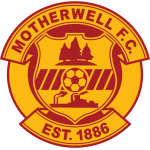Jamaica (League) - AI Football Predictions Online
| AI | ||
|---|---|---|
 Premier League Premier League | ||
| 2026-02-15 22:00 |
| 1 1 |
| 2026-02-16 22:00 |
| 1 1 |
| 2026-02-17 22:00 |
| 1 1 |
| 2026-02-18 22:00 |
| 1 1 |
| 2026-02-19 22:00 |
| 1 1 |
| 2026-02-20 22:00 |
| 1 1 |
| 2026-02-21 22:00 |
| 1 1 |
| 2026-02-22 22:00 |
| 1 1 |
| 2026-02-23 22:00 |
| 1 1 |
| 2026-02-24 22:00 |
| 1 1 |
| 2026-02-25 22:00 |
| 1 1 |
Statistics for Jamaica (League)
The Vibrant Landscape of Jamaican Football: A Deep Dive into the Sport and Culture
Jamaica, an island nation known for its rich culture, reggae music, and stunning beaches, also boasts a passionate football scene that captures the heart of its people. The sport is more than just a game here; it is intertwined with the national identity, serving as a source of pride and unity. From local grassroots initiatives to the international stage, Jamaican football continues to evolve, showcasing the talent and resilience of its players.
The Origins of Football in Jamaica
Football was introduced to Jamaica during the British colonial era in the late 19th century. The first recorded match took place in 1865, and the sport quickly gained popularity among locals. By the early 20th century, organized leagues began to emerge, with teams representing various communities across the island. The establishment of the Jamaica Football Federation (JFF) in 1910 marked a significant milestone, as it laid the foundation for the governance and development of the sport.
Initially, the game was played mainly in urban areas, but it soon spread to rural regions, becoming a staple of community life. Local players would gather in makeshift pitches, showcasing their skills and passion for the game. This grassroots enthusiasm laid the groundwork for future generations of Jamaican footballers, contributing to a football culture that is as vibrant as the island itself.
Domestic Leagues: A Platform for Local Talent
The Jamaican Premier League (JPL) serves as the pinnacle of domestic football, showcasing the best talent from across the island. Established in 1973, the league has undergone various transformations to improve competitiveness and fan engagement. Clubs like Harbour View FC, Portmore United, and Waterhouse FC have historically dominated the league, contributing to its rich tapestry of rivalry and excitement.
With a format that pits teams against each other in a round-robin system, the JPL not only highlights individual skills but also emphasizes teamwork and strategy. Each season culminates in a thrilling playoff series, where the top teams battle for the coveted championship title. The league has produced numerous players who have gone on to shine on international stages, including the likes of Leon Bailey and Andre Gray, who have made significant impacts in European football.
The Reggae Boyz: Jamaica's International Legacy
Jamaica's national team, fondly known as the Reggae Boyz, has carved a niche for itself in international football. The team's most notable achievement came in 1998 when they qualified for the FIFA World Cup held in France. This historic moment was a source of immense pride for the nation, as it was the first time a Caribbean nation had reached the World Cup finals. The team's spirited performances, including a memorable draw against Japan, left an indelible mark on the global football landscape.
Since then, the Reggae Boyz have continued to participate in various international competitions, including the CONCACAF Gold Cup, where they have consistently been competitive. Their style of play, characterized by speed and flair, reflects the island's cultural vibrancy. Players like Darren Mattocks and Kemar Lawrence have become household names, representing the heart and soul of Jamaican football and inspiring young athletes across the nation.
The Role of Football in Jamaican Society
Football in Jamaica transcends mere entertainment; it serves as a crucial social tool that fosters community engagement and development. Local clubs often organize youth programs that provide training and mentorship to aspiring footballers. These initiatives not only hone athletic skills but also promote discipline, teamwork, and leadership—values that resonate deeply within the Jamaican culture.
Moreover, football serves as a unifying force during challenging times, bringing together people from diverse backgrounds. Whether it's a local derby or an international match, the atmosphere is electric, with fans passionately supporting their teams, draped in the national colors of black, green, and gold. This sense of community and shared purpose is evident during major tournaments, where the entire nation rallies behind the Reggae Boyz, creating a palpable sense of national pride.
The Future of Jamaican Football
As Jamaican football continues to grow, there are both challenges and opportunities on the horizon. The increasing interest from international clubs in Jamaican players presents a dual-edged sword. While it offers exposure and financial incentives for players, it also raises concerns about retaining local talent. The JFF is working diligently to create pathways for young players, ensuring that they have the resources and support needed to succeed both domestically and internationally.
Investment in infrastructure, coaching, and youth development programs is crucial for the future of the sport. Initiatives aimed at improving facilities and providing access to training can help nurture local talent and keep them in the country longer. Moreover, collaborations with international clubs and organizations can offer valuable insights and resources that can elevate the standard of Jamaican football.
Conclusion: A Game of Passion and Pride
Jamaican football is a vibrant tapestry woven into the cultural fabric of the island. From its historical roots to its present-day achievements, the sport reflects the resilience and spirit of the Jamaican people. The passion for football is evident in every match, every cheer, and every goal scored. As the nation continues to embrace the beautiful game, the world watches in anticipation of the next chapter in Jamaican football—a journey filled with hope, talent, and unwavering pride.



